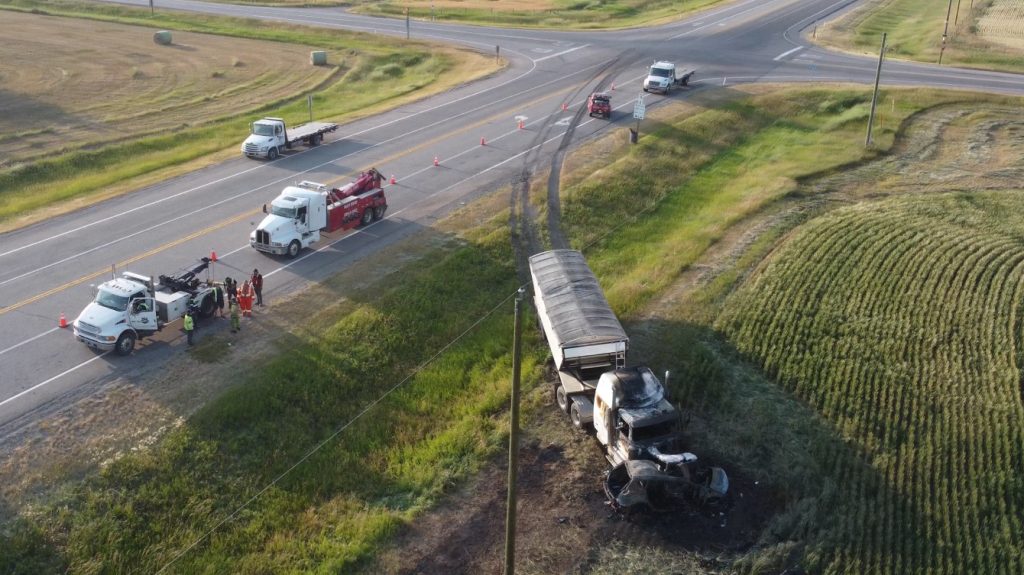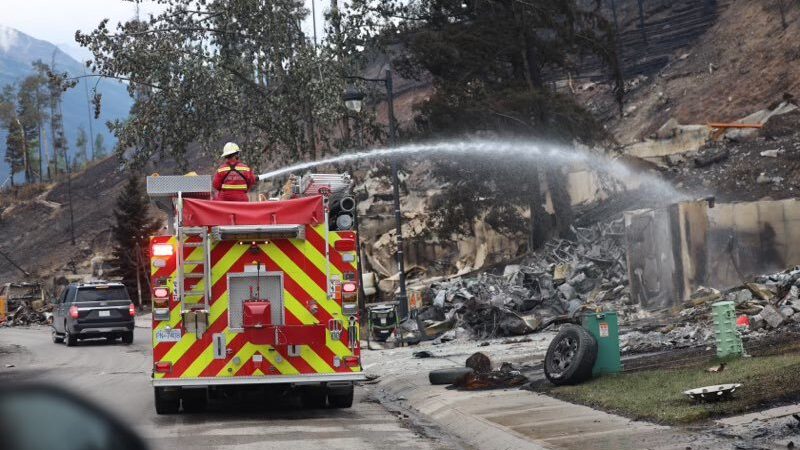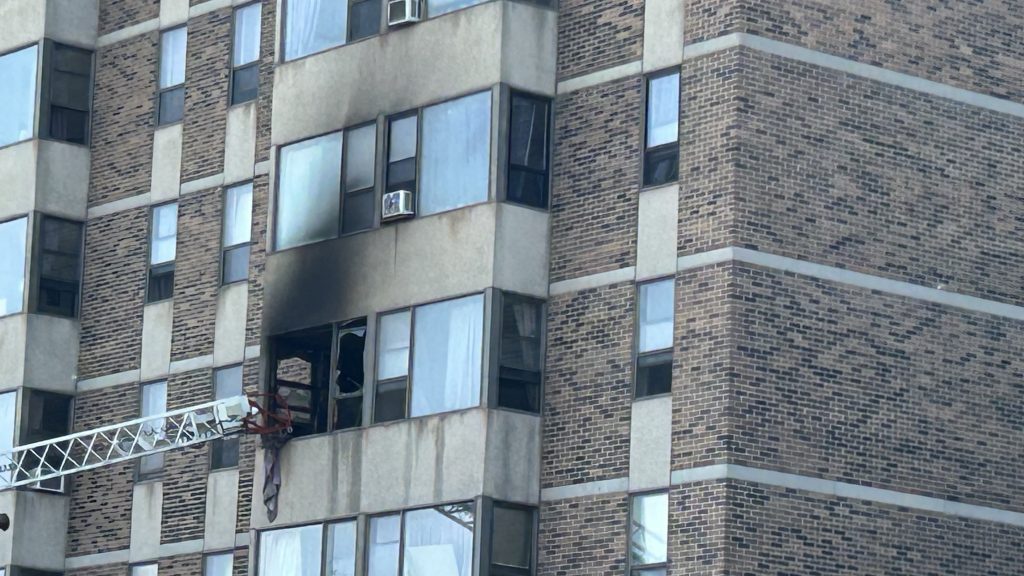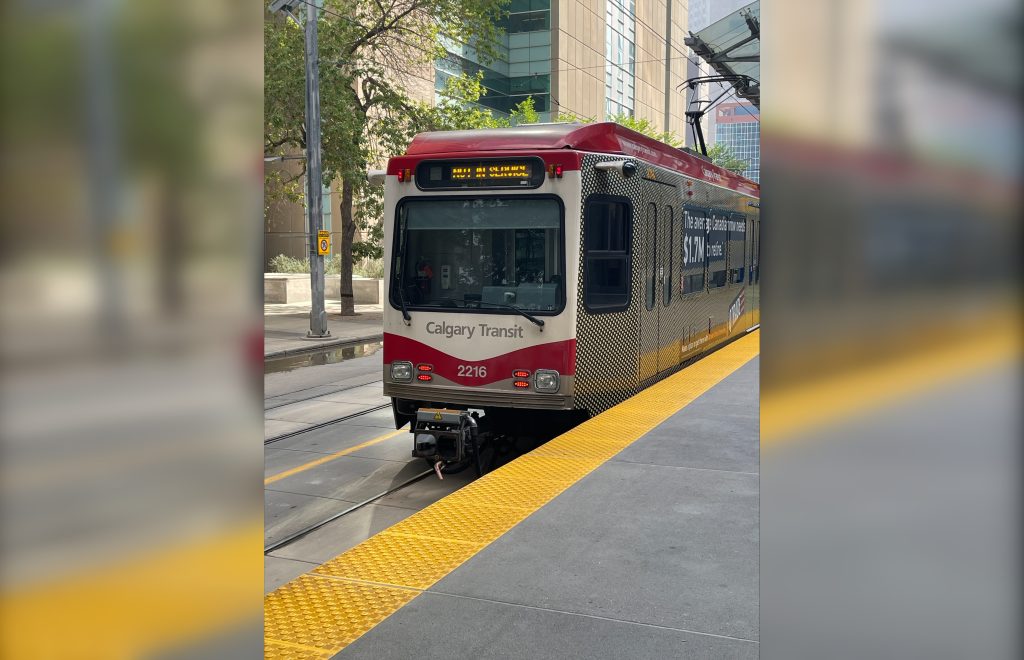Alberta premier urges Senate to pass carbon price exemption bill for farmers

Posted Nov 15, 2023 1:16 pm.
Alberta Premier Danielle Smith is urging Canadian senators to “urgently pass” a bill that would exempt farmers from paying the carbon tax on natural gas or propane used to heat barns and dry grain.
The bill from a Conservative MP faces one final vote in the Senate before it either dies or becomes law.
In her letter to senators Wednesday, Smith estimates Bill C-234 will bring down food prices for Canadians by saving farmers close to $1 billion by 2030.
“Albertans watched with concern last week when the Senate voted to unexpectedly shut down debate on the final vote of this bill,” the Alberta premier wrote.
“Farmers across our country are struggling to deal with the impact of the carbon tax n their activities. This pain is also being felt by ordinary Canadians, with out-of-control food price inflation forcing Canadians to skip meals or choose between rent or groceries.
“Food is not a luxury – it is a basic necessity.”
Bill C-234 has become the latest focal point in the ongoing carbon-pricing clash between the Liberals and Conservatives.
It passed the House of Commons in March with support of the Conservatives, Bloc Quebecois, NDP and Greens. All but three Liberal MPs voted against it.
The bill was first debated in the Senate during its third and final reading stage last Thursday.
Smith says she is concerned by efforts to delay or re-write the bill.
“This lifeline to our farmers and regular Canadians should be passed in its original form and without delay,” she wrote.
Crop drying is biggest cost for Alberta grain producers
For Alberta farmers like Jeff Nielson, fossil fuels are a must to heat barns during the cold, long winters or to dry wet crops. Another delay for Bill C-234 means farmers are unsure if they’ll receive carbon tax relief.
“It’s adding up. You’re getting charged the carbon tax, then you’re getting charged GST on top of the carbon tax, so you’re actually getting charged twice,” said Nielson, a delegate for Alberta Grains. “By 2030, it will probably outweigh the actual cost of fuel. And maybe we are getting close to that point now. Like that’s getting pretty silly when you’re paying more in taxes for fuel.”
Nielson explains the biggest cost for grain producers is crop drying.
“If I have to dry my grains, I have to use propane or natural gas. We have to get our crops, our lands in good time. We are actually seeing a lot of production where we are taking it off sooner, not waiting for the weather to dry it down naturally, so we are using natural gas or propane to dry it down to maintain the quality, because our customers want our grains, and they want it in the best quality they can get.
“And we can only use natural gas or propane. We’re always willing to try new ways, but there’s no new technologies in the foreseeable future to dry grain yet.”
WATCH: Carbon tax on natural gas is another hurdle Alberta farmers face
Guilbeault, Poilievre argue over carbon price exemption
Federal Environment Minister Steven Guilbeault said Tuesday the Liberal government doesn’t support the bill because most farm fuel is already exempt from the carbon price. He also says there are programs in place that aim to offset the carbon-price cost to farmers or help them buy more energy-efficient equipment that mitigates their need to use natural gas or propane.
Farmers already don’t pay the carbon price on gasoline and diesel used in farm vehicles. There is a tax credit for farmers to help offset the cost of the carbon price they do pay, but like the rebates issued to families, there is no direct tie-in to what a specific farmer pays. It is calculated based on a farm’s overall income.
Conservative Leader Pierre Poilievre echoed Alberta Premier Danielle Smith’s comments this week, saying Canadians need relief.
“We can’t have more taxes on our food when more than two million people are already forced to food banks and downgrade their diets,” said Poilievre. “This is a common-sense solution, it’s a compassionate solution.”
WATCH: Carbon tax exemption on oil fails to address affordability: Alberta Premier, opposition
Independent Alberta senator torn
Paula Simons, an independent senator from Alberta who was appointed by the liberals, says she’s torn on the bill. She supported an amendment to the bill that would have narrowed the exemption to only grain drying, but also expresses concerns over climate change.
Climate change isn’t something that might happen one day in the future, its happening right here, right now and I do believe, in general, that carbon taxes are a good way to send a price signal to change behavior to deal with climate change,” said Simons.
“Nobody wants to pay more, but that’s the point of the carbon tax, and if we are serious about climate change, we have to make hard decisions about how we live. We can’t just assume somebody else, some place else, will make the sacrifice.”
The Senate is scheduled to consider Bill C-234 next week. If the bill passes as is, it becomes law. But if senators make any changes, the bill would have to go back to the House of Commons.
Simons expects that could be long process.
“That’s really the tension in the Senate right now,” she said. “Do we take the time to make amendments that might make the bill better? Or do we pass the bill as is, which would guarantee that it becomes law?”
As farmers wait to hear the vote, they say the carbon tax money is coming directly out of their own pockets, with no way to recoup that cost.
“Bottom line, we can’t pass these costs on,” said Nielson. “As a grain producer, the price of my commodities – wheat, barley and canola – are based on the markets.”
–With files from The Canadian Press








